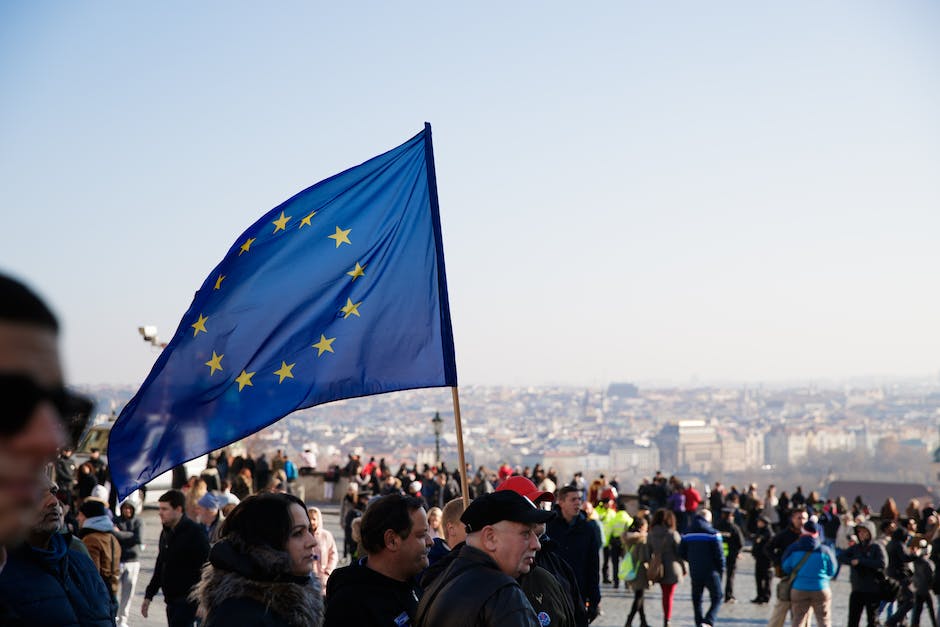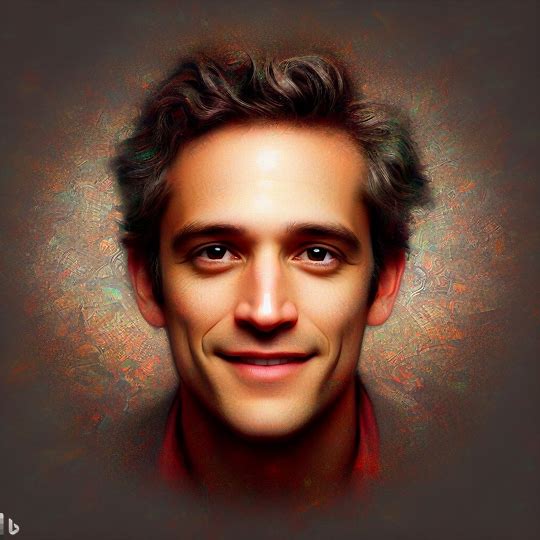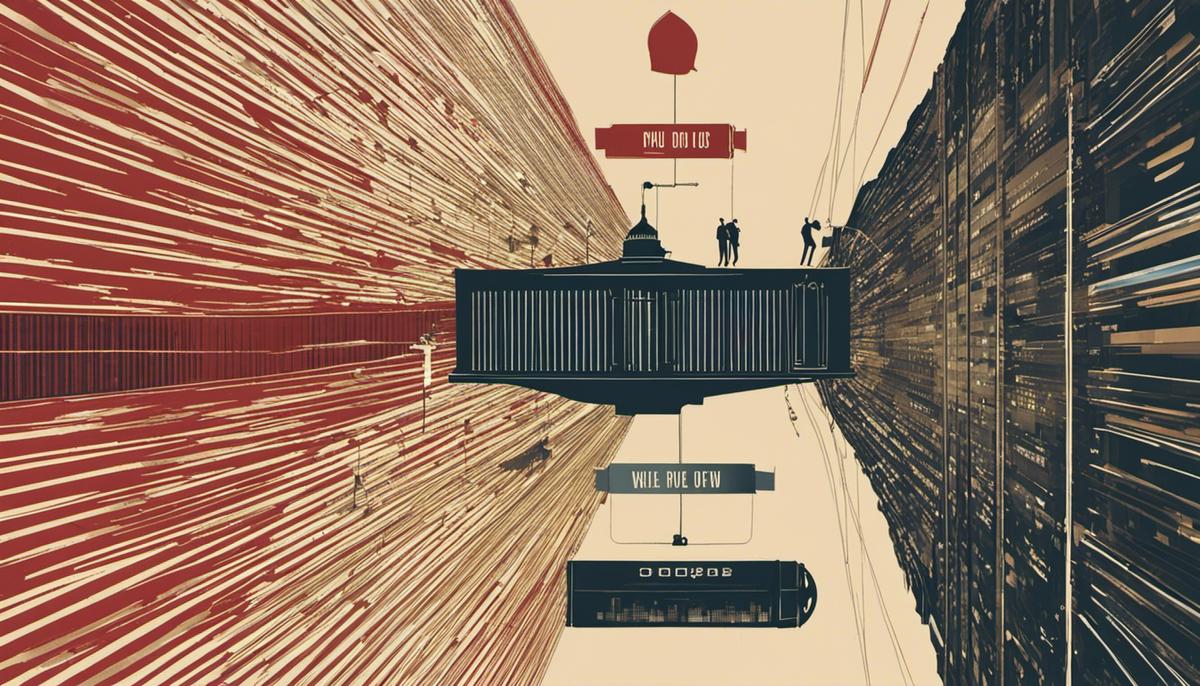In an authentic democratic setting, understanding and interpreting public opinion is a pivotal task. Fluctuating like the tides of an ocean, public opinion truly embodies the voice of the people, setting a critical foundation for the democratic society we embrace today. It serves as an undeniable tool reflecting the citizens’ perspectives, intent, and expectations, making it inextricably tied to their societal norms and core values. While much of public opinion’s role in democratic governance is celebrated, it is noteworthy that it also encompasses potential pitfalls and drawbacks, stirring up debates among political analysts, psychologists, and citizens alike. Furthermore, with today’s technology surge, the role of media in shaping public opinion has gained significant attention, prompting a thorough exploration of its impact on democratic decision-making.
Table of Contents
Conceptual Understanding of Public Opinion in Democracy
An Examination of the Role of Public Opinion in Democratic Government and Scales for its Measurement
For a meaningful conversation on the concept of democracy, one would be remiss to omit an analysis of the role of public opinion. In essence, it forms a critical foundation upon which the tenets of democracy rest, a dynamic and at times unpredictable facet that thrives on the consensus or dissent of the public on various issues.
Public opinion, to correctly frame it, is a collection of attitudes, ideas, and beliefs shared by people about specific public issues. It is an amalgamation of thoughts derived from individual and collective viewpoints and inherently carries the power to dictate the actions of a government in a democracy. Delineating this relationship further, democratic governments hinge largely on the meaningful participation of citizens, a process that takes form through the lens of public opinion. Following this, policies, laws, decisions, and arguably every meaningful action taken by democratic governments are inextricably linked to the public’s consensus.
The precise measurement of public opinion is of interest not only to political scientists, but also to participants in the democratic process who seek to effectively implement policy. A diversity of methods – or scales – for measuring public opinion exists, providing the foundation from which analysis and prediction of public opinion trends may be garnered.
One such scale is the Likert Scale, a psychometric scale commonly involved in research that employs questionnaires. Developed by Rensis Likert, the scale enables respondents to express how much they agree or disagree with a particular statement.
Another widely used scale for measuring public opinion is the Guttman Scale. Developed by Louis Guttman, it is a type of ordinal scale used in survey research. While a Likert Scale assumes that intervals between each option are equal across all items, a Guttman Scale seeks to identify one single dimension underlying responses to a set of items.
Multiple methods can be used synergistically to obtain more nuanced understandings. For instance, a combination of Likert and Semantic Differential Scales can provide more comprehensive views. The Semantic Differential Scale measures the connotative meaning of objects, events, and concepts, aligning with Osgood’s Theory of Cognitive Dynamics.
Public opinion plays a fundamental role in shaping the trajectory of democratic governments and making the law-making process truly representative. Despite numerous challenges in accurately capturing this multifaceted concept, the development and refinement of scales provide indispensable tools in ensuring that governments in democracies reflect the true will of the people. Therefore, the continuum of exploring innovative scales and improving existing methods to measure public opinion will always be at the forefront of better democratic processes and stronger democratic institutions.

Interpretation of Public Opinion in Democratic Decisions
Democracy thrives, indeed it rests, on the profound principle of people’s sovereignty, where public opinion guides policy formulation. We refer to public opinion not as an amalgamation of random thoughts but as the collective judgment of the public on issues pertinent to their society. Empowered by the advent of modern communications technologies, refined methodologies, and increasingly accepted as a genuine component of the democratic process, public opinion is a potent force within governance systems.
Grasping the depth of public opinion’s influence on democratic decision making necessitates a comprehension of the conceptual distances traversed from the expression of public sentiment to the final policy outcome. These typically include the formation of public opinion, articulation of the public’s perspective, agenda-setting, policy formulation, decision making, and ultimately, policy implementation. The role of the press, political elites, and interest groups play pivotal roles in this intricate progression.
The cultivation theory of mass media informs our understanding of how public opinion forms, especially in complex, diversified societies where citizens rely heavily on the media for information. Through consistent, long-term exposure to certain narratives, the media significantly shapes the perception and opinion of the public. These perceptions subsequently get articulated through various mechanisms, including but not limited to, polls, campaigns, protests, and elections, providing valuable input to policymakers.
At the agenda-setting stage, an often unmentioned yet significant role of public opinion is its influence on the prioritization of policy issues. Policy issues that gain substantial public urgency largely due to public sentiment more often than not get expedited attention from decision-makers.
In the policy formulation stage, policymakers actively consider public opinion to craft socio-politically tenable policies. The rational actor model presupposes that decision-makers are utility maximizers, who, in the context of democratic governance, bear in mind public opinion while making decisions, to ensure their political survival.
Indeed, as democratic principles would suggest, policies that resonate with public opinion stand a greater chance of successful implementation. The public’s underlying acceptance or rejection significantly impacts policy rollout. This sentiment subsequently influences the degree of societal cooperation, which is vital to the successful implementation and overall effectiveness of policies.
Counterintuitively, insufficient consideration of public opinion can result in ‘unowned’ policies, which may face significant implementation barriers despite their technical merits. Such situations underpin the criticality of public opinion in not just policy formulation but also in realizing policy objectives on the ground.
Public opinion, therefore, weaves an integral thread in the democratic decision-making tapestry, impressing on various stages, from agenda-setting, through decision-making, and onto policy implementation. Resonance with public sentiment elevates a policy’s chances of successful execution, whilst poor alignment could stymie even the most well-intended policies. Democracies, in essence, must respect, even cherish, the role of public opinion in shaping socio-political landscapes towards better governance and improved societal outcomes.

Impact of Media on Public Opinion
Undoubtedly, the media plays an essential role in constructing the public’s perception of critical matters, which in turn directs policy adoption and modification within democratic governments. As an influential gatekeeper of information, the media uses its power to either amplify or de-emphasize particular issues. This function serves as an agenda-setting strategy, where the media presents certain topics as being more significant than others, thereby influencing the public sentiment and encouraging discourse in those areas. The widespread attention and coverage a particular matter obtains compel governments to consider and respond to it; thus underscoring the strength of public opinion in stimulating democratic decision-making.
Yet, the media’s duty extends beyond merely setting the agenda. It serves a crucial function as a conduit of information, disseminating crucial details that shape public discourse and opinion. This dissemination of information often acts as a catalyst in defining a common understanding among the people, who then exert pressure on the public institutions. Consequently, within the democratic construct, the media wields considerable power in influencing policy-making due to its ability to form and direct public opinion.
Indeed, the media also acts as a watchdog, scrutinizing government actions for accountability and transparency. This invigilation often contributes to generating public opinion as it reveals the efficacy of the democratic institutions in handling public affairs. Notably, the media serves to represent the people’s acceptance or discontent with the political authorities, which eventually constrains or directs the policy implementation process.
However, it is worth emphasizing that disregarding public opinion can have severe repercussions. The history of many democracies isn’t bereft of instances where a failure to heed public sentiment resulted in policy backlash, often leading to legislative revisions and occasional political upheavals. Therefore, public opinion, as shaped and amplified by the media, is not only influential but integral to policy formulation and implementation.
In conclusion, public opinion in a democratic government, for which the media is a primary conduit and amplifier, is not merely a facet but a cornerstone of the decision-making process. It reflects the principle of people’s sovereignty, forming, expressing, and influencing the shaping of crucial decisions and policies. Therefore, recognition, respect, and responsiveness to public opinion are not mere options but imperatives for better governance in democratic societies. It is here that the role of the media, as an architect and messenger of public opinion, becomes not just significant, but indispensable. Indeed, as long as democratic principles value the voice of the people, the media’s role in shaping public opinion will remain invaluable in choreographing the dance of governance.

Public Opinion and its Potential Pitfalls in Democracy
Amid conversations of democracy, public opinion, and policy frames, it becomes pertinent to discuss potential pitfalls and criticisms around the over-reliance on public sentiment—a topic that warrants both understanding and caution in interpretation.
A primary concern materializes in the volatile nature of public opinion. Subject to the ebb and flow of current affairs, demographics, emotions, and other external influences, public opinion can change rapidly and unpredictably. This sporadic trait makes it a questionable foundation for setting long-term policies or strategies that require a certain degree of consistency and stability. The dilemma often faced by decision-makers is deciphering which shifts in public opinion are transient and which represent genuine, enduring changes in societal values.
Over-reliance on public opinion could unwittingly lead to the tyranny of the majority. This scenario can be problematic in that the rights and interests of a minority group may be sacrificed for the sake of appeasing the majority. The cornerstone of democracy is not only majority rule, but also the safeguarding of minority rights. Overemphasis on public sentiment, therefore, can contravene democratic principles.
Another matter of contention lies within the formation of public opinion itself, where media influence commands a disproportionate amount of power. It begs the question, does public opinion shape media narratives, or do media narratives construct public sentiment? This intricate chicken-egg problem is critical because an overdependence on public opinion may, in reality, be an overdependence on media perspectives, undermining the democratic principle of equal influence.
Yet another issue stems from the political manipulation of public opinion. In the hands of malevolent actors, public sentiment can be harnessed for personal agendas or nefarious purposes. The very fabric of democracy could be shaken if public opinion is manipulated to subvert the democratic process under the pretense of ostensible public good.
Last, but by no means least, is the knowledge gap problem. The policies being decided upon often involve complex, technical, and profound matters that average citizens may not fully comprehend. Over-reliance on public opinion essentially places the fate of highly complex decisions onto those who might lack the requisite expertise or knowledge. The question of technocracy versus democracy surfaces, underlining the danger of oversimplifying or overlooking expert advice in favor of populist sentiments.
To conclude, excessive dependence on public opinion has multifarious pitfalls that can potentially outweigh its merits if not treaded on carefully. It’s a balancing act in the world of democracy where public sentiment is honored, but its limitations and manipulability are simultaneously recognized and accounted for in policy framing and execution. Democracy in essence is not merely about echoing the voice of the people, but about ensuring the welfare, security, and rights of its citizens—responsibilities that transcend the realms of popularity and momentary sentiment towards a more comprehensive and stable approach.

Through an examination of public opinion’s conceptual understanding, its role in democratic decisions, the influence of media, and its potential pitfalls, clarity unfolds on its complex relationship with democratic governance. Public opinion, inherently multifaceted and capricious, significantly affects every facet of democratic decision-making and policy implementation. However, it is not without its share of complexities and potential downfalls. Moreover, in this digital era, the media’s role cannot be overlooked as it significantly shapes public perceptions and beliefs. Although public opinion is monumental for democracy, an over-reliance could lead to conflicts and discrepancies in a diverse society. Therefore, the challenge lies in striking a balance to ensure that the government embraces the public’s opinion while still safeguarding the nation’s broader interests.

Matt Smith is a seasoned journalist and author whose expertise spans across the dynamic realms of Politics, Gadgets, Gaming, and a plethora of general interest topics. With a Master’s in Political science and tech pedigree shaped in Silicon Valley, Matt brings a wealth of knowledge and a critical eye to everything he writes.
Politics: Matt offers sharp political commentary, drawing from his experience as a political analyst and his academic rigor.
Gadgets: His tech insights are grounded in real-world experience, having been on the front lines of innovation with a degree from Caltech.
Gaming: A respected voice in gaming, Matt’s reviews and trend analyses are a testament to his deep involvement in the gaming community.
General Topics: From science to culture, Matt’s writing spans a broad spectrum, engaging readers with a blend of expertise and relatable prose.
Engage with Matt’s compelling content for a fresh perspective on the issues at the forefront of today’s discourse.

